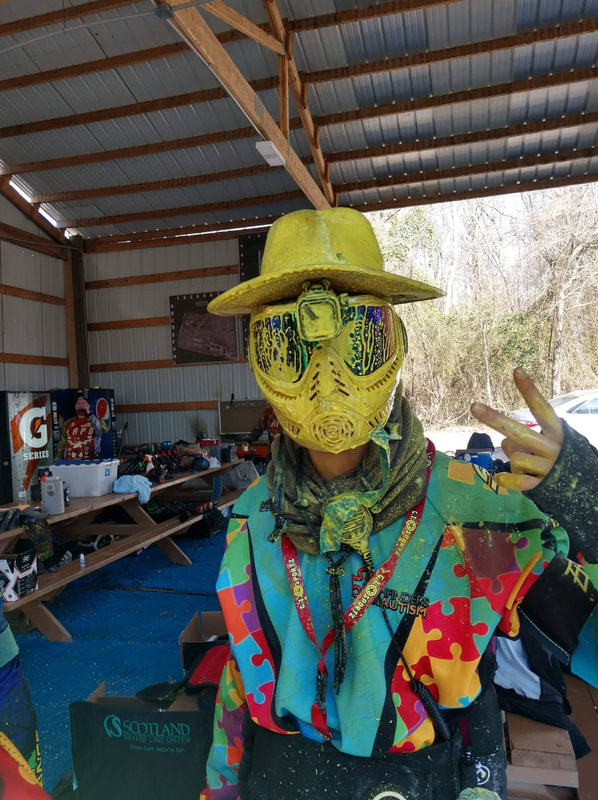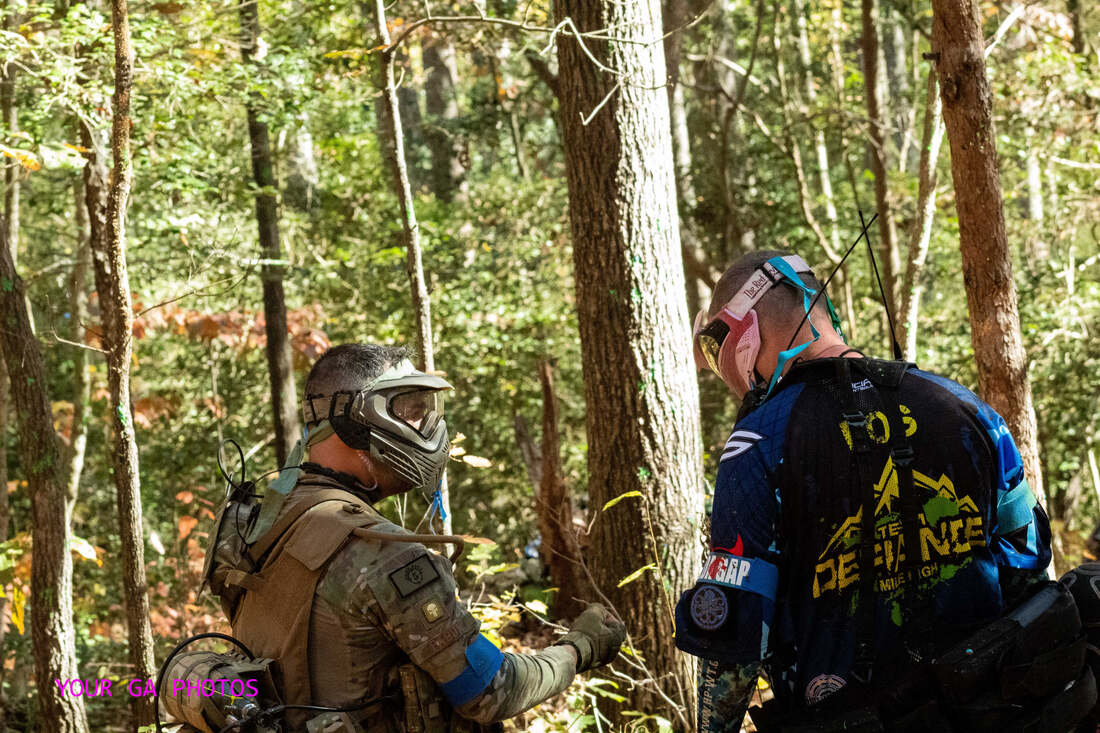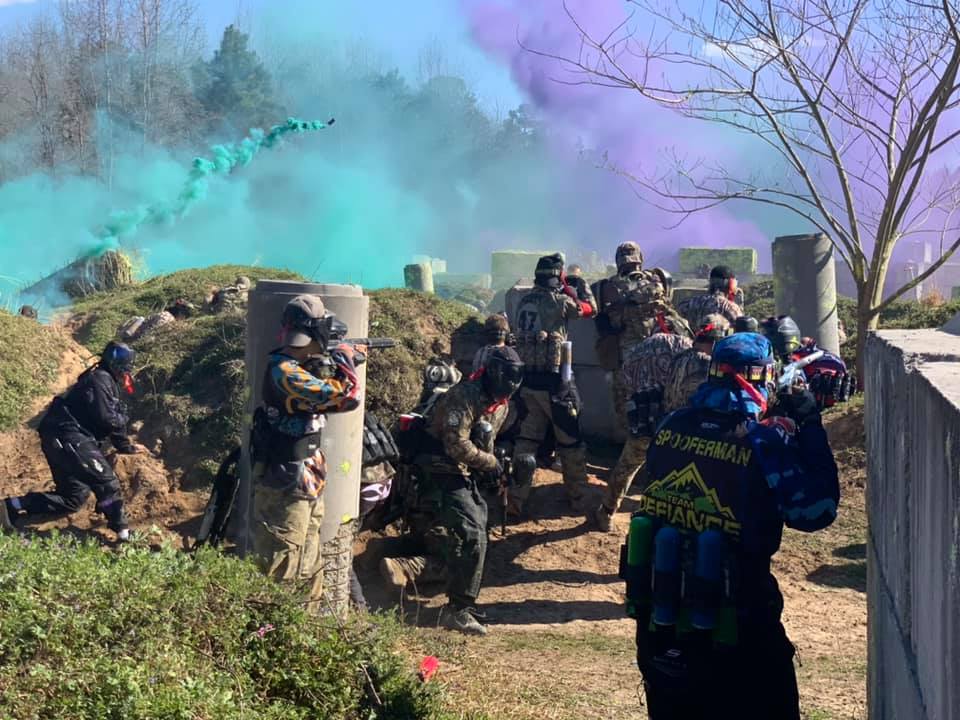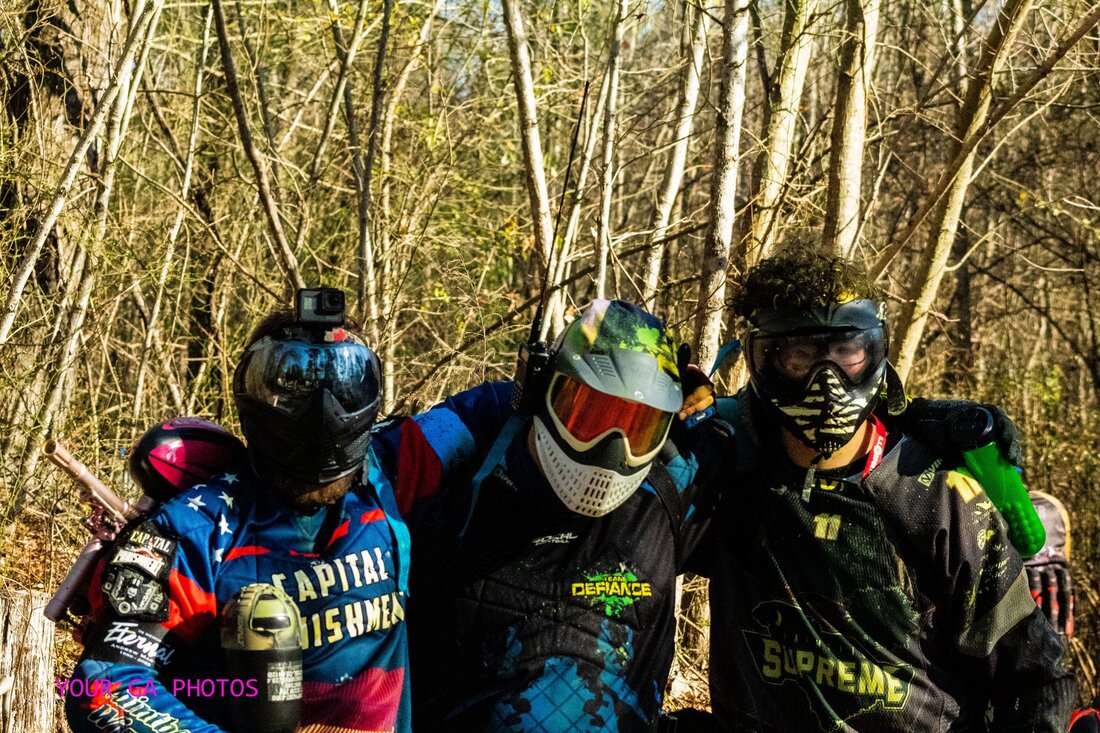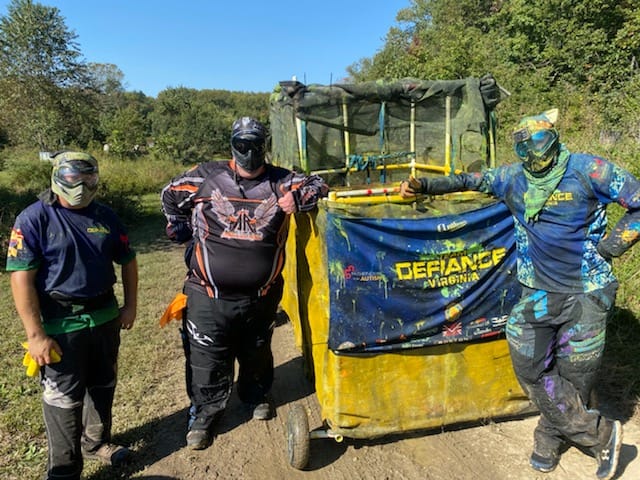Unstacking the Deck: Why You Should Join the Underdogs
This column is going to be about something that a lot of people might not agree with, and that's okay. It's a personal opinion (and my team along for the ride with me), and something that I've experienced both sides of throughout my time in playing the sport. This is about the stacking the deck in scenario games. What I mean by that is joining the side that's heavily favored, knowing that you're more likely to going to win before the event even starts. I see the situations as overwhelmingly a negative, no matter which side that you're joining, and here's why you should consider swapping to from hammer to nail.
Let me start off with a study that was done by the psychology department of the University of California, Irvine. They conducted a study in which they pitted two players against each other in a game of Monopoly. Before the game started, they flipped a coin. The player that won the coin flip got $200 when passing Go. The player that lost the coin flip got $100. Not surprisingly, the player that won the coin flip won the game the overwhelmingly majority of the time. They bragged, rubbed it into their opponents faces, and taunted regularly. What was interesting is that those players that won almost always attributed, when asked, why they won as some sort of thing that they did during the game. Decisions that they made, strategies that they used, or specific moments that really stood out to them during the game.
What they almost never mentioned was having an overwhelming large advantage given to them at the very beginning of the game handed to them. They attributed their victory to something that they themselves had done, not that they were playing someone with one hand tied behind their back. The people in the study consistently failed to recognize that while they won, it wasn't something that was outside of a very expected result since they were given a massive advantage. The winners weren't overcoming any odds or really proving their skill---they were just doing what they really should have done in winning. It wasn't any sort of accomplishment to win for the favored players. It was the foregone conclusion. Anything outside of that outcome was an anomaly.
Let me start off with a study that was done by the psychology department of the University of California, Irvine. They conducted a study in which they pitted two players against each other in a game of Monopoly. Before the game started, they flipped a coin. The player that won the coin flip got $200 when passing Go. The player that lost the coin flip got $100. Not surprisingly, the player that won the coin flip won the game the overwhelmingly majority of the time. They bragged, rubbed it into their opponents faces, and taunted regularly. What was interesting is that those players that won almost always attributed, when asked, why they won as some sort of thing that they did during the game. Decisions that they made, strategies that they used, or specific moments that really stood out to them during the game.
What they almost never mentioned was having an overwhelming large advantage given to them at the very beginning of the game handed to them. They attributed their victory to something that they themselves had done, not that they were playing someone with one hand tied behind their back. The people in the study consistently failed to recognize that while they won, it wasn't something that was outside of a very expected result since they were given a massive advantage. The winners weren't overcoming any odds or really proving their skill---they were just doing what they really should have done in winning. It wasn't any sort of accomplishment to win for the favored players. It was the foregone conclusion. Anything outside of that outcome was an anomaly.
Time to State the Obvious
You should be able to see where I am going with this. That study very much applies to paintball in big games and scenarios, and stacking teams.
When teams get stacked and one side has handed the other it's collective ass in recruiting, it creates a situation very much like the monopoly study I am referring to above, only with worse outcomes than possibly a pissed-off flip of the board. One side is predictably going to get hammered, with the severity of the ass whipping varying by the how well the underdog can over-perform.
That leads to a lot of other negative outcomes. As the day goes on, unlike the people in the Monopoly study, the people at a big game or scenario don't have to stand there and take it. Several, especially the more casual players, will leave. They will literally pack up and drive home. That causes the problem to snowball. Others will hang out in the parking lot (and possibly get face time with some eCelebs!---I kid...kind of) a lot longer than usual, leaving their side even more short-sided. Still other players will get frustrated, angry, and take it out on people around them. This is especially likely if the team that is the hammer in this situation has started to get mouthy about it, just like those Monopoly players.
And for the side that is doing exactly what would be expected of it---kicking the underdog around---it can lead to mass boredom. I've been to games that were one-sided enough that the winning team was playing pick up games in the space that their team controlled, just to have some sort of action. It also puts players in a weird scenario if they're self-aware---how proud are you of stomping a side you know that you should have stomped? You did win as you were hoping to do, but you were likely hoping for some action. To those that aren't so aware---you're the Monopoly player getting double the money in the experiment then bragging about winning.
The long term consequences of this deck stacking are not small. It can really hurt game long-term. If everyone knows before the game even starts who is going to win, and players consistently only want to join one side, it just exacerbates the problem. One side just keeps getting more stacked. That leads to boredom, and everyone knows it going in. It's a great way to kill interest in a game, and have attendance shrink year over year or event over event.
You should be able to see where I am going with this. That study very much applies to paintball in big games and scenarios, and stacking teams.
When teams get stacked and one side has handed the other it's collective ass in recruiting, it creates a situation very much like the monopoly study I am referring to above, only with worse outcomes than possibly a pissed-off flip of the board. One side is predictably going to get hammered, with the severity of the ass whipping varying by the how well the underdog can over-perform.
That leads to a lot of other negative outcomes. As the day goes on, unlike the people in the Monopoly study, the people at a big game or scenario don't have to stand there and take it. Several, especially the more casual players, will leave. They will literally pack up and drive home. That causes the problem to snowball. Others will hang out in the parking lot (and possibly get face time with some eCelebs!---I kid...kind of) a lot longer than usual, leaving their side even more short-sided. Still other players will get frustrated, angry, and take it out on people around them. This is especially likely if the team that is the hammer in this situation has started to get mouthy about it, just like those Monopoly players.
And for the side that is doing exactly what would be expected of it---kicking the underdog around---it can lead to mass boredom. I've been to games that were one-sided enough that the winning team was playing pick up games in the space that their team controlled, just to have some sort of action. It also puts players in a weird scenario if they're self-aware---how proud are you of stomping a side you know that you should have stomped? You did win as you were hoping to do, but you were likely hoping for some action. To those that aren't so aware---you're the Monopoly player getting double the money in the experiment then bragging about winning.
The long term consequences of this deck stacking are not small. It can really hurt game long-term. If everyone knows before the game even starts who is going to win, and players consistently only want to join one side, it just exacerbates the problem. One side just keeps getting more stacked. That leads to boredom, and everyone knows it going in. It's a great way to kill interest in a game, and have attendance shrink year over year or event over event.
So What Do Can You Do About It?
There are several things that can be done, and by several people involved in events to discourage overloading one side of the game.
Starting at the top, event organizers can make sure that both Generals are on even footing. Get two that are equally committed to both pushing your event and recruiting. Try to make sure that both sides are on the same level in terms of who might actually know who they are, and be equal in terms of ability to get commitments from other teams. If they aren't, talk to some larger, more established teams and get them to commit to the side that you know is going to be the dog. In some events, you can also write rules or have a third side that help stop it from being one long spawn trap. Have the 'oh-shit' plans ready to go.
And for the love of god, promote the damn event yourself. I've literally been the one of 3 players playing on one side of an event before over the age of 18 people because the field owner did nothing to promote an event, and my team couldn't make it there. If you think being spawn trapped sucks, try it with a bunch of kids that you're really just trying to help have a good time. If you aren't doing this stuff before the event, you're setting yourself up to fail.
Generals and officers also need to get out and actually do the grind that is recruiting. It's not always easy, especially if the other side got out there before you. But you have to do it, put yourself out there, and be willing and able to go fish in ponds that haven't been worked over when you know that your side is in catch up mode. Social media is your friend, as is going to events in-person and seeking out people that you don't know but respect and with whom you might share values.
For example, this year with NATO and Fulda, I was asked to be an officer (We flipped from WARSAW to NATO, with one of the biggest reasons being that we saw WARSAW being stacked after having an extra year to recruit). A huge majority of my buddies and teams that we are friends with were already committed to WARSAW. Our unit had virtually no players for it...but I knew that I was going to D-Day. I met a bunch of great dudes that hadn't really played Fulda, but wanted to give it a shot. I talked to them about making the trip and several of them were awesome and came out. Those guys made a difference. I also made some R/T cockers for a friend that was considering the game. I spoke to him about his team of 20 coming out. They made a difference. I hit up MCB and talked to friends on the board about joining up. And they made a difference. And from going to D-Day, to online recruiting over a forum, and talking to my customer, I was able to fill an entire unit (including 3 other now-officers) and then some from people who weren't regulars to the game from all over the country, and they seemed to all have a really good time. Not normal recruiting path for the event at all, but it was effective. And it's not like I am super well-known. Anyone can do this if they can talk to people, have fun, and make connections. Go outside of your comfort zone, make new friends, and bring them to your side. It's your job to try and put yourself in a good position before 'Game On,' and this is even more true when you're on the small side.
There are several things that can be done, and by several people involved in events to discourage overloading one side of the game.
Starting at the top, event organizers can make sure that both Generals are on even footing. Get two that are equally committed to both pushing your event and recruiting. Try to make sure that both sides are on the same level in terms of who might actually know who they are, and be equal in terms of ability to get commitments from other teams. If they aren't, talk to some larger, more established teams and get them to commit to the side that you know is going to be the dog. In some events, you can also write rules or have a third side that help stop it from being one long spawn trap. Have the 'oh-shit' plans ready to go.
And for the love of god, promote the damn event yourself. I've literally been the one of 3 players playing on one side of an event before over the age of 18 people because the field owner did nothing to promote an event, and my team couldn't make it there. If you think being spawn trapped sucks, try it with a bunch of kids that you're really just trying to help have a good time. If you aren't doing this stuff before the event, you're setting yourself up to fail.
Generals and officers also need to get out and actually do the grind that is recruiting. It's not always easy, especially if the other side got out there before you. But you have to do it, put yourself out there, and be willing and able to go fish in ponds that haven't been worked over when you know that your side is in catch up mode. Social media is your friend, as is going to events in-person and seeking out people that you don't know but respect and with whom you might share values.
For example, this year with NATO and Fulda, I was asked to be an officer (We flipped from WARSAW to NATO, with one of the biggest reasons being that we saw WARSAW being stacked after having an extra year to recruit). A huge majority of my buddies and teams that we are friends with were already committed to WARSAW. Our unit had virtually no players for it...but I knew that I was going to D-Day. I met a bunch of great dudes that hadn't really played Fulda, but wanted to give it a shot. I talked to them about making the trip and several of them were awesome and came out. Those guys made a difference. I also made some R/T cockers for a friend that was considering the game. I spoke to him about his team of 20 coming out. They made a difference. I hit up MCB and talked to friends on the board about joining up. And they made a difference. And from going to D-Day, to online recruiting over a forum, and talking to my customer, I was able to fill an entire unit (including 3 other now-officers) and then some from people who weren't regulars to the game from all over the country, and they seemed to all have a really good time. Not normal recruiting path for the event at all, but it was effective. And it's not like I am super well-known. Anyone can do this if they can talk to people, have fun, and make connections. Go outside of your comfort zone, make new friends, and bring them to your side. It's your job to try and put yourself in a good position before 'Game On,' and this is even more true when you're on the small side.
Getting Personal
And now, I am bringing up what a lot of this will boil down to---Why you actually play? Are you looking to join up with a side that you know will win going in, or are you looking for a tougher fight or challenge? Do you enjoy a seal clubbing, or brag about your k/d ratio in Call of Duty while playing with an aimbot? Are you one of the people in the Monopoly study who thinks that they're better than their opponent since they won, and don't acknowledge that they damn well should have since they were given a massive advantage before the game even started? Are you really that proud to brag about winning or taking a base quickly when you outnumbered the other side by literally hundreds of people? Is it just the win that matters for you, or how that win actually happened?
Or are you someone who goes into the game looking for an fair fight, or even with the deck stacked against you a bit? Are you looking for a challenge, knowing that if you win (or even just make sure that the game has a lot of give and take), you damn well earned every bit of it?
Some people are going to say that they want to win, and that's it. And that's okay. I'm not going to sit here and tell you how to play your paintball. Your fun isn't necessarily the same as mine, but I may judge you a bit.
And now, I am bringing up what a lot of this will boil down to---Why you actually play? Are you looking to join up with a side that you know will win going in, or are you looking for a tougher fight or challenge? Do you enjoy a seal clubbing, or brag about your k/d ratio in Call of Duty while playing with an aimbot? Are you one of the people in the Monopoly study who thinks that they're better than their opponent since they won, and don't acknowledge that they damn well should have since they were given a massive advantage before the game even started? Are you really that proud to brag about winning or taking a base quickly when you outnumbered the other side by literally hundreds of people? Is it just the win that matters for you, or how that win actually happened?
Or are you someone who goes into the game looking for an fair fight, or even with the deck stacked against you a bit? Are you looking for a challenge, knowing that if you win (or even just make sure that the game has a lot of give and take), you damn well earned every bit of it?
Some people are going to say that they want to win, and that's it. And that's okay. I'm not going to sit here and tell you how to play your paintball. Your fun isn't necessarily the same as mine, but I may judge you a bit.
Players that think like I do would rather lose a fair fight than win when they other side didn't have a shot. That's why my team has switched sides in events when asked, joined sides we knew were in trouble, and done recruiting like we did this year with Fulda. We go to games for the gunfights, not just to win. Value the actual experience over locked-in results.
I know that we're far from alone in doing these things.
I would love if more teams do this when looking at scenarios and big events and seeing things get out of hand. Now, I fully understand that there are definitely other reasons that you may be committed to a side. You may have a tradition of playing with a unit or side. You may like attacking more than defending. One of the General's may have pictures of your wiener and be blackmailing you. Or You may have a bunch of friends on one side, and want to play together. If its the last one---great!---try bring them over to your side. And if they don't come, I do promise you that you'll be friends after and it's a hell of a lot of fun to shoot people that you know.
When you see a side getting overloaded, I would hope that people reading this might think about why they're playing on one side, and if they're willing to take on the underdog role. Getting hammered or standing around bored while kicking the ever-living piss out of another side that stands no chance isn't fun for anyone, and kills games in the short- and long-term. It's not enough to complain about it. It makes for a better game for everyone when teams are more committed to the game itself than one side or another. Don't look for someone else to change things. Be the change. Be the nail that breaks the hammer.
I know that we're far from alone in doing these things.
I would love if more teams do this when looking at scenarios and big events and seeing things get out of hand. Now, I fully understand that there are definitely other reasons that you may be committed to a side. You may have a tradition of playing with a unit or side. You may like attacking more than defending. One of the General's may have pictures of your wiener and be blackmailing you. Or You may have a bunch of friends on one side, and want to play together. If its the last one---great!---try bring them over to your side. And if they don't come, I do promise you that you'll be friends after and it's a hell of a lot of fun to shoot people that you know.
When you see a side getting overloaded, I would hope that people reading this might think about why they're playing on one side, and if they're willing to take on the underdog role. Getting hammered or standing around bored while kicking the ever-living piss out of another side that stands no chance isn't fun for anyone, and kills games in the short- and long-term. It's not enough to complain about it. It makes for a better game for everyone when teams are more committed to the game itself than one side or another. Don't look for someone else to change things. Be the change. Be the nail that breaks the hammer.
